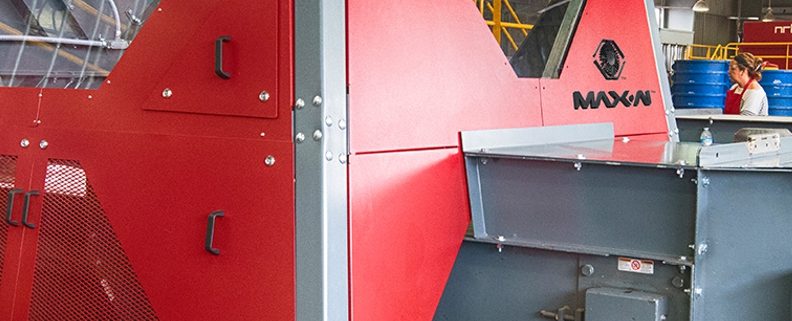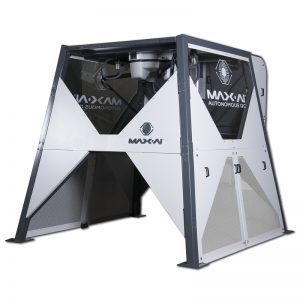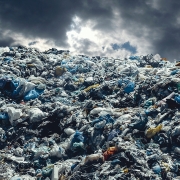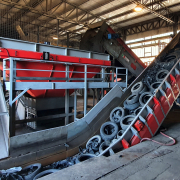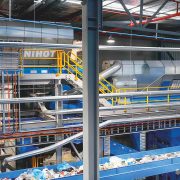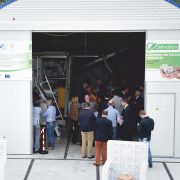New Sorting System Uses Artificial Intelligence
Technology provider Bulk Handling Systems (BHS) has announced the arrival of Max-AI technology, an artificial intelligence that identifies recyclables and other items for recovery.
“Through deep learning technology, Max-AI employs both multi-layered neural networks and a vision system to see and identify objects similar to the way a person does”, BHS assures. “The technology will drive improvements in Material Recovery Facility (MRF) design, operational efficiency, recovery, system optimization, maintenance and more.”
According to the information, the first available machine utilizing Max-AI technology is an Autonomous Quality Control (QC) unit that sorts container streams following optical sorting. This robotic sorter uses its vision system to see the material, its artificial intelligence to think and identify each item, and a robot to pick targeted items. “This system is able to make multiple sorting decisions autonomously, for example separating various materials such as thermoform trays, aluminum and fiber while removing residue from a stream of PET bottles”, the technology supplier says. “All of this is done at rates exceeding human capabilities.”
As reported, the first commercial Autonomous QC unit is already in operation at Athens Services’ Materials Recovery Facility (MRF) in Sun Valley, California (USA). A recipient of the SWANA Award for Excellence in 2016, Athens was an ideal location for the first installation of Max-AI robotic sorters to complement the advanced screen, air and optical separation technology already in use. Integrating seamlessly with the company’s existing NRT optical sorters, “Max” provides a fully autonomous PET sorting solution. According to BHS, this technology was simply not possible until now. Recent advances in computer processing capabilities had enabled the company to develop this machine learning platform. “Max” is central to BHS’ plan to bring autonomous optimization to MRFs over the coming years, increasing performance and profitability. This is seen as revolutionary for the recycling industry, because operating costs will go down while uptime, throughput, recovery and purity will all increase, leading to significant economic benefits.
Photo: BHS/Nihot
GR 22017

